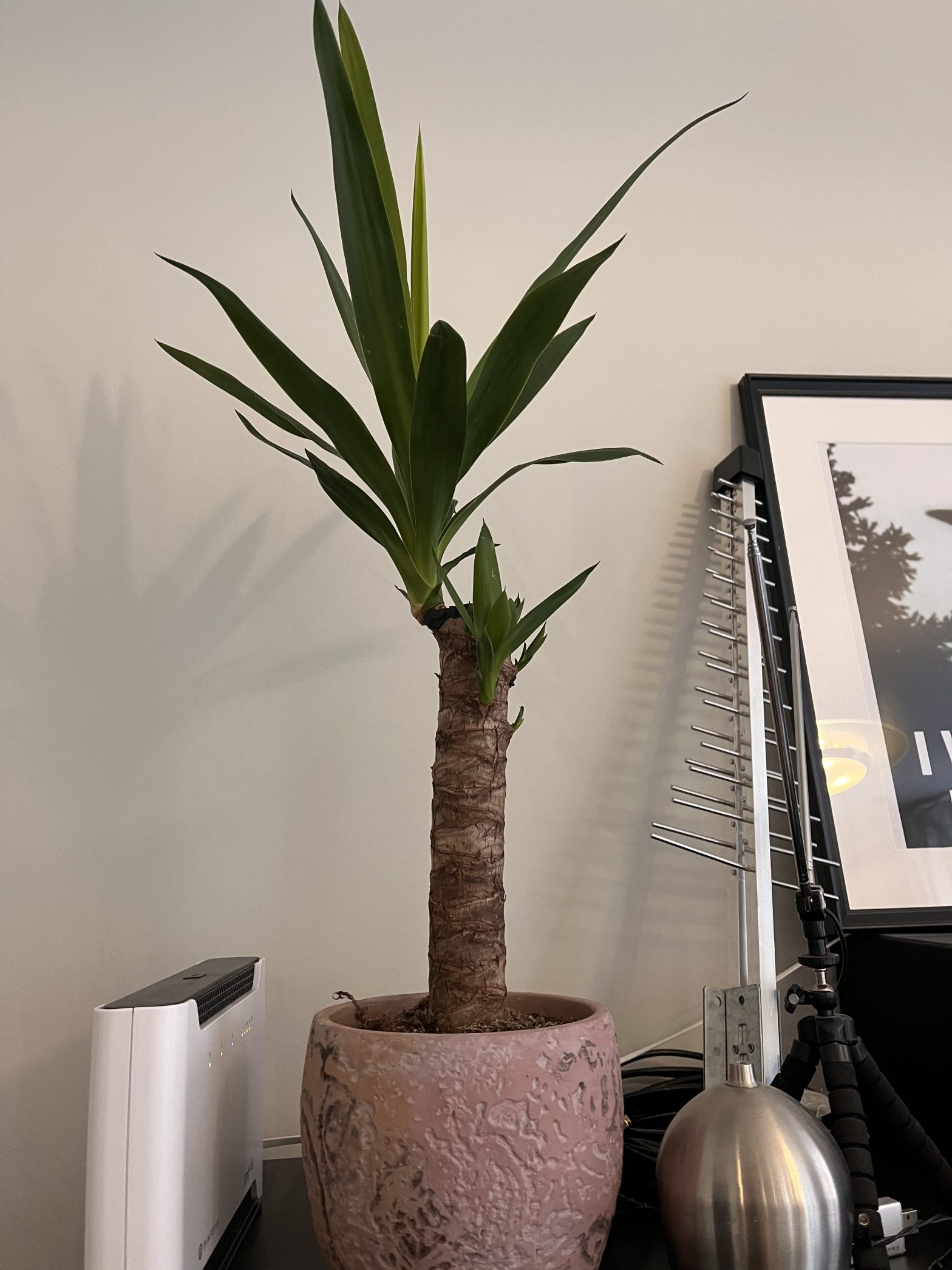General description
The Yucca, commonly referred to as the Dagger Plant due to its sharp, pointed leaves, is a resilient and striking genus of perennial shrubs and trees in the Asparagaceae family, notable for its rosettes of evergreen, tough, sword-shaped leaves and whitish blooms. With over 40-50 species in the genus, Yuccas are native to the arid regions of the Americas and the Caribbean, symbolizing their adaptability and rugged beauty.
Yuccas have a rich history tied to the indigenous cultures of the Americas, where they have been utilized for centuries for their fibers, food, and soap, derived from their roots. The plant’s natural distribution spans the hot, dry areas of North and Central America, from the Canadian south through the United States, Mexico, and into the Caribbean. This diverse geographical spread has resulted in a wide variety of species, each adapted to its unique environment. The name “Yucca” itself originates from the Carib language, a testament to its deep roots in native cultures.
Yucca plants can vary greatly in size and form, ranging from small, ground-covering species to large trees. They typically feature clusters of leaves, which can be either stiff and sword-like or softer and more flexible, depending on the species. The leaves often end in a sharp point, which is where the nickname “Dagger Plant” comes from. Yuccas are also known for their spectacular flower spikes, which rise above the foliage and carry numerous white, bell-shaped flowers. These blooms are not only beautiful but are also especially adapted to pollination by the Yucca moth, in a unique mutualism where each species relies on the other for survival.
Basic care
| Sunlight requirements | Watering schedule | Coffee grounds |
| Direct sunlight | 14 days | Avoid |
Tips
- Light: Yuccas thrive in full sun and can tolerate partial shade, but they bloom best when exposed to direct sunlight for most of the day.
- Watering: While drought-tolerant, they do require regular watering during their growing season but allow the soil to dry out completely between waterings. In winter, reduce watering significantly.
- Soil Type: Well-draining soil, as their roots are prone to rot in moist conditions. A mixture of sand and regular potting soil is ideal for container-grown Yuccas.
- Coffee Grounds: Yuccas require minimal fertilization, and an excess of nitrogen or moisture retained by the coffee grounds could harm the plant.
- Temperature: Yuccas are hardy in a range of temperatures but can suffer in prolonged frost. Some species are more cold-resistant than others
- Fertilisation: They benefit from a light application of a balanced, slow-release fertiliser during the spring and summer months.
- Repotting: Yucca plants grow relatively slowly and don’t need to be repotted often. Generally, repotting every 2-3 years is adequate to provide the plant with fresh soil and a little more room to grow. When repotting
Watering Frequency: Every 14 day(s)
Last Watered On: 2024-09-07 18:04:51
